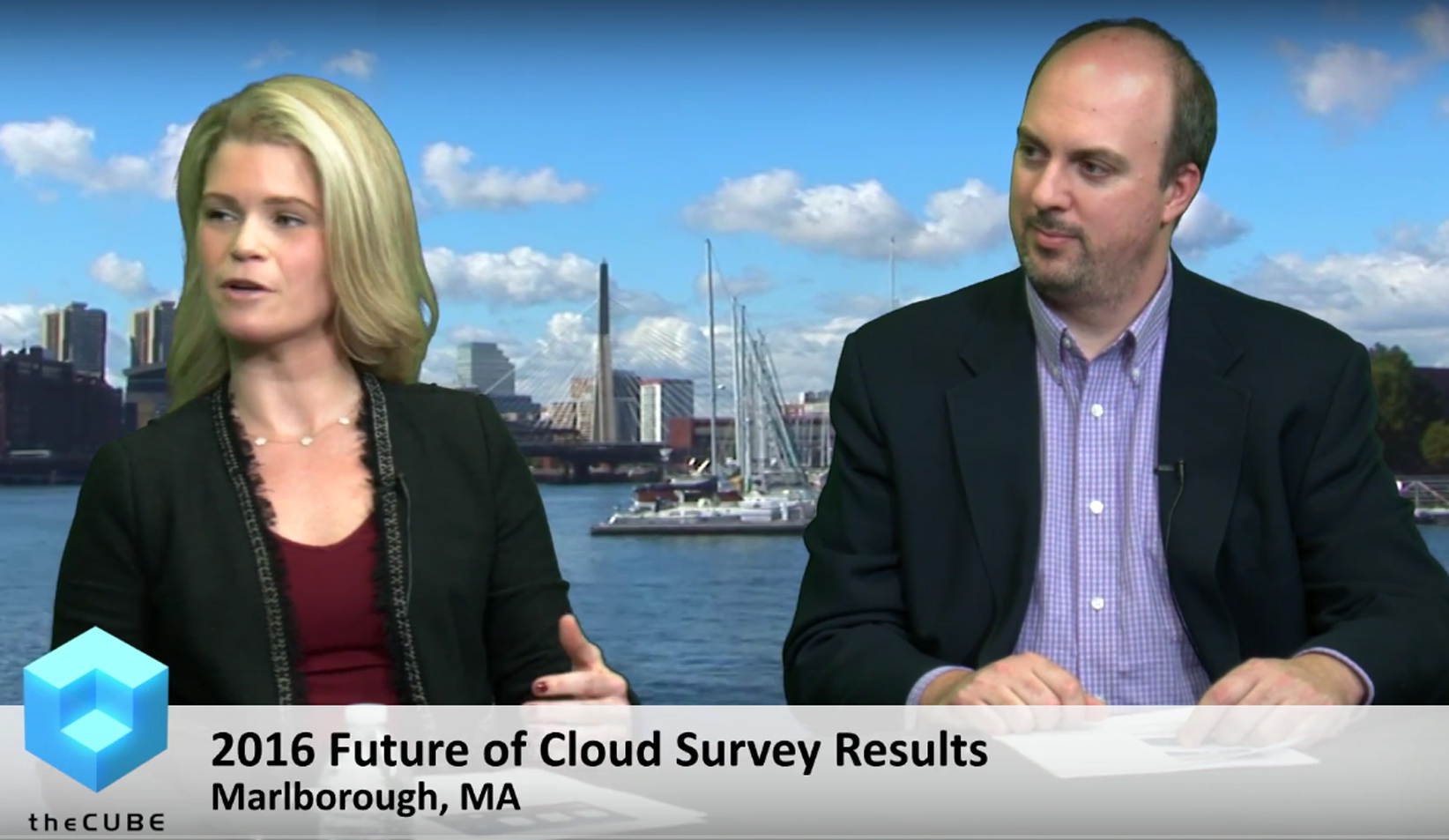 CLOUD
CLOUD
 CLOUD
CLOUD
 CLOUD
CLOUD
Wikibon and North Bridge Growth Equity recently announced the results of its sixth annual Future of Cloud Computing Survey. This survey analyzes trends in cloud computing, adoption, use and challenges on a yearly basis, and it provides one of the broadest and deepest explorations of the cloud industry with 53 leading cloud companies participating as collaborators.
The record-breaking survey revealed the different strategies organizations are using for cloud, the need for companies to have strong cloud governance strategies, and what type of cloud businesses will use most in the future.
To further discuss the findings of this year’s Future of Cloud Computing Survey, Paul Gillin (@pgillin), theCUBE host and enterprise editor for SiliconANGLE, was joined by Stu Miniman (@stu), fellow host of theCUBE and senior analyst for Wikibon, as well as Holly Maloney McConnell, principal at North Bridge Growth Equity. (TheCUBE is SiliconANGLE Media’s mobile live streaming studio.)
This year’s survey included 1,351 respondents, representing a 60/40 balance of user/vendor perspectives spanning senior executives to practitioners across all industry sectors, such as technology, F.I.R.E., government, healthcare, manufacturing, media, professional services and transportation.
This year’s survey found that while slightly less than 50 percent of all companies have either a cloud-first or cloud-only strategy, some form of cloud strategy is pervasive among all, with 90 percent of companies surveyed reporting that they use cloud in some capacity.
A new finding this year is the fact that 42 percent of companies surveyed — a surprisingly high number –derive 50 percent or more of their business through cloud-based applications. In fact, a whopping 79.9 percent of the companies surveyed were getting some revenue from the cloud. This speaks to the rapid digital transformation that is occurring across many industries, as well as how many are looking to not only move quickly with the cloud, but profit from it as well.
“In the last few years, we’ve seen large, enterprise companies, including banks and the U.S. government, moving into cloud; they’re starting to see the advantages,” said Miniman. He said that while the industry is moving from a tactical to a more strategic view of cloud, some companies are still using cloud for a few targeted areas, while others are using it as a full strategy for their enterprise.
One of cloud’s biggest strengths is that it allows organizations to increase their pace of innovation, continuously, while they think about their strategy, the survey revealed. The DevOps movement is part of this — to build into the product development organization so that organizations can take advantage of the cloud while maintaining cost, minimizing risk and increasing agility.
“Having a really solid cloud governance strategy is increasingly important [for companies today],” McConnell said.
So what type of cloud will the enterprise primarily use moving forward? “Cloud environments will remain predominantly hybrid in the coming years, enhancing the importance of a clearly defined cloud governance and orchestration strategy to optimize for security, self-service and agility, while minimizing costs,” McConnell stated.
Watch the entire video below to find out more:
Support our mission to keep content open and free by engaging with theCUBE community. Join theCUBE’s Alumni Trust Network, where technology leaders connect, share intelligence and create opportunities.
Founded by tech visionaries John Furrier and Dave Vellante, SiliconANGLE Media has built a dynamic ecosystem of industry-leading digital media brands that reach 15+ million elite tech professionals. Our new proprietary theCUBE AI Video Cloud is breaking ground in audience interaction, leveraging theCUBEai.com neural network to help technology companies make data-driven decisions and stay at the forefront of industry conversations.